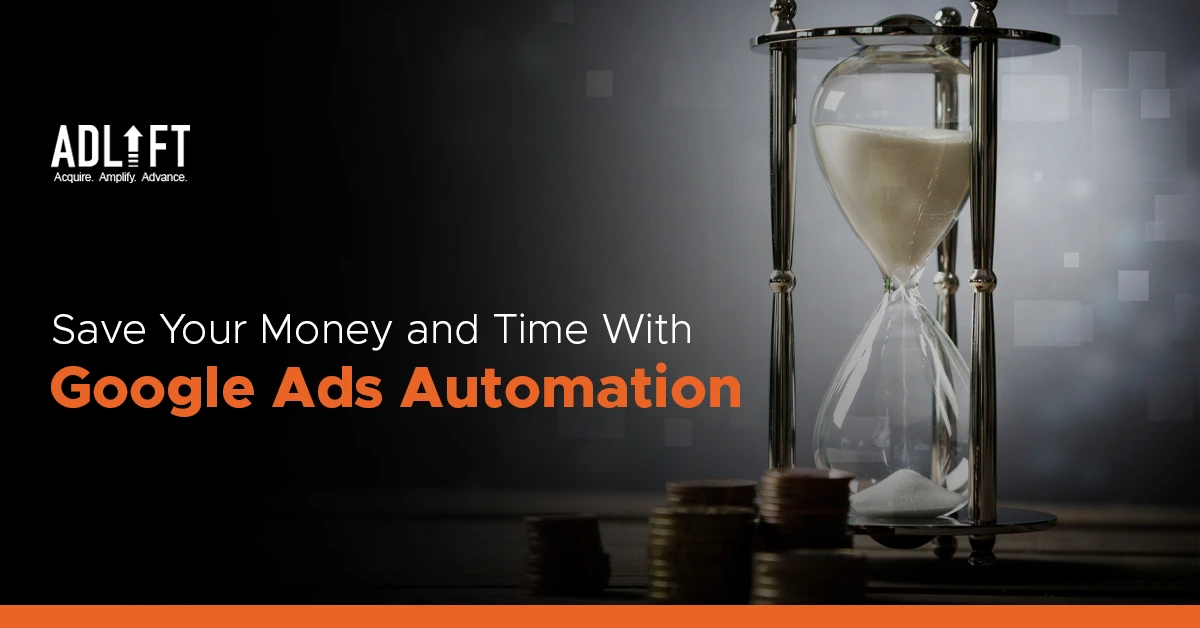How Google Ads Automation Can Save Your Money and Time?

Are you looking to make your Google Ads campaigns more efficient? Do you want to save time and money while maximising your return on investment (ROI)? Look no further than Google Ads automation. In this article, we will explore how Google Ads automation can revolutionise your advertising efforts and help you achieve your business goals.
Understanding Google Ads
Before we delve into the benefits of automation, let’s take a moment to understand Google Ads. Google Ads, formerly known as Google AdWords, is an online advertising platform developed by Google. It is a powerful online advertising platform that allows businesses to reach their target audience effectively. It enables businesses to display ads on Google’s search engine results pages (SERPs), websites, and other online platforms.
However, managing Google Ads campaigns manually can be time-consuming and complex. That’s where automation comes in. By leveraging the power of Google AdWords Automation, advertisers can streamline their campaigns, optimise performance, and achieve better results with less effort.
The Benefits of Google AdWords Automation
Time Savings
One of the primary advantages of Google Ads Automation is the time it saves. By automating repetitive tasks such as bid adjustments, ad scheduling, and keyword optimization, advertisers can free up valuable time that can be better spent on strategy and creative development. Automated Google Ads allows you to focus on high-level decision-making rather than getting bogged down in manual campaign management. With the help of Google AdWords Automation, advertisers can effectively manage and scale their campaigns, saving time and effort.
Cost Efficiency
In addition to time savings, Google AdWords Automation can also help you save money. By using automated bidding strategies, you can optimise your ad spend based on performance data and predefined goals. Automation enables real-time adjustments to your bids, ensuring that you get the most out of your advertising budget.
Key Features of Google Ads Automation
To fully leverage Google Ads automation, it’s essential to understand its key features. Let’s explore some of the most impactful automation tools available:
Smart Bidding
Smart Bidding uses machine learning algorithms to optimise bids and maximise conversion value or conversion rate. Using Google AdWords Automation, advertisers can optimise their bidding strategies, ensuring maximum ROI for their ad spend. By analysing historical data and various contextual signals, Smart Bidding automatically adjusts your bids in real-time, driving better results.
Dynamic Search Ads
Dynamic Search Ads automatically generate ads based on the content of your website. This feature saves time by dynamically creating and optimising ads for relevant search queries. It ensures that your ads are always up to date and reflective of your website content.
Responsive Search Ads
Responsive Search Ads (RSA) take automation a step further by dynamically adjusting the ad’s content to match the user’s search query. RSA automatically tests different combinations of headlines and descriptions to find the most effective ad variation, improving performance over time.
Setting Up Google Ads Automation
To get started with Google Ads Automation, follow these steps:
Campaign Goals
Define your campaign goals and objectives. Whether it’s increasing website traffic, generating leads, or driving sales, setting clear goals is crucial for automation success.
Audience Targeting
Identify your target audience and create relevant audience segments. By leveraging Google AdWords Automation’s audience targeting options such as demographics, interests, and marketing lists, businesses can reach the right customers at the right time, improving their chances of conversions.
Ad Creation and Optimization
Automated Google Ads enable advertisers to reach their audience with precision and enhanced performance, ensuring maximum visibility and engagement. Craft compelling ad copy and leverage automation tools like RSA to enhance ad performance. Regularly monitor and optimise your ads to improve click-through rates (CTR) and conversions.
Monitoring and Optimization
Automation doesn’t mean setting it and forgetting it. Regular monitoring and optimization are essential to ensure optimal campaign performance. Here are some key practices:
Performance Tracking
Track key metrics like impressions, clicks, conversions, and cost per acquisition (CPA). Use Google Ads’ reporting tools to gain insights into your campaign performance and identify areas for improvement.
A/B Testing
Conduct A/B tests to compare different elements of your ads, such as headlines, descriptions, and landing pages. This data-driven approach allows you to refine your ads continuously and maximise their effectiveness.
Overcoming Challenges
While Google Ads automation offers numerous benefits, it’s essential to be aware of potential challenges. Here are two common hurdles and how to overcome them:
Learning Curve
Getting familiar with automation tools and strategies may take some time. Invest in learning resources, attend webinars, and leverage Google’s support documentation to make the most of automation features.
Managing Budget
Automation can be a double-edged sword if not managed carefully. Set a budget and regularly monitor your spending to ensure you stay within your allocated funds. Adjust bids and campaign settings as needed to control costs.
Conclusion
Google Ads automation offers a wealth of benefits, including time savings, cost efficiency, and improved campaign performance. The use of automated Google Ads empowers businesses to scale their advertising efforts and expand their reach to new customers. With the power of Google AdWords automation, businesses can streamline their advertising campaigns and drive targeted traffic to their websites.
By leveraging automation tools such as Smart Bidding, Dynamic Search Ads, and Responsive Search Ads, advertisers can achieve better results with less effort. Embrace the power of automation, streamline your Google Ads campaigns, and drive your business forward.

